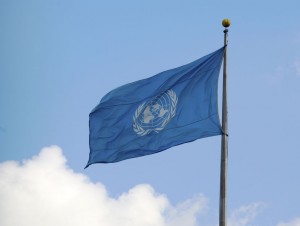At the United Nations, More Work to Be Done for Religious Freedom and the Rights of the Child

At the United Nations this week, the Special Rapporteur on Freedom of Religion or Belief, Heiner Bielefeldt, provided an update on the state of world religious freedom. This latest report also focused on the Committee and the Rights of the Child (CRC) and the issues related to how the impact of faith and the denial of faith affect children and their parents.
This sincere and detailed report also discussed the political, psychological, and sociological implications of denying the freedom of faith, including the option not to be faithful—whether through the state or non-state actors.
The problems are serious. In the severest cases of religious violations of children’s rights, children are abducted from their families and forced to convert or take on a more devout expression of faith tradition, denying their basic protections, their civil and human rights, and their ability to seek their own way in life.
For boys, they are often indoctrinated in hate and forced to fight for radicalized religious groups or face death. For girls, they can be forced to marry—sometimes at the age of seven—or used as sex slaves.
As examples, think of ISIS’s attacks on the Yazidis or the actions of Boko Haram in Nigeria. Or of less well-documented violations—Mennonites, themselves a religious minority, have a monopoly of schools in certain South American countries and in essence force those who want to get an education to attend their religious bible schools.
While the report supports rights of parents and children to freely seek their faith or non-faith traditions, it is apparent to many, although not to the United Nations as an organized body, that religion and children are a volatile mix—even if they are indoctrinated in less violent or more secular faith traditions.
Real and verifiable research has shown that ethics and the Golden Rule are stamped within human (and other primate) DNA. It has also been shown that empathy is a biological function of evolution. Religious theology therefore manipulates this hardwiring into fatalistic identities—almost removing our common inbred humanity for the sake of religious cultural identity.
So I conclude that it is safe to ask, does religious indoctrination “dumb down” our basic human empathy (since none of us are born with religious faith)? The result being that religious teaching makes those who do not believe the same set of theological doctrines “the other,” creating the next generation of cultural, minority, or interfaith violence?
Clearly the United Nations and the Special Rapporteur think not because of their ongoing support of both child and parent to freely seek the right to have faith. Such choices of course need to be defended as part of human rights, yet I see the role of freethinkers (myself included) at the UN as important because we serve as a counterbalance to the idea that religious faith as a construct is actually constructive.
Nonbelievers both remind and call into question even mild faith indoctrination as well as those more radical and terrorist religious theologies that seek to harm others.
